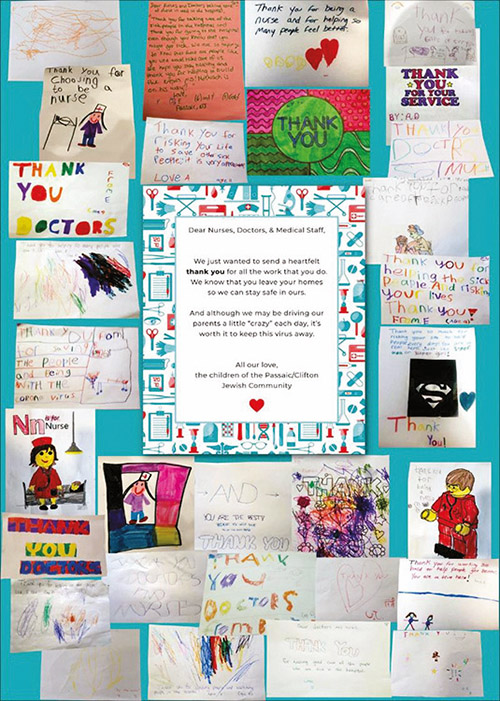
(Courtesy of SMGH) As we read the various reports of when this pandemic will be under control and when we will all get the vaccinations, there seems to be a lot of hope that we may see relief by late summer—15 to 18 months after it started. Which means we can finally get out of our quarantined dwellings and back to a normal life once again. Or can we?
Soon we will be seeing reports on the psychological impact of quarantine, which may be with us for years to come. Common symptoms include post-traumatic stress disorder (PTSD), acute stress disorder, exhaustion, detachment from others, anxiety when dealing with the sick, irritability, insomnia, poor concentration and indecisiveness, deteriorating work performance and reluctance to work or consideration of resignation. And some of these factors can be four times higher in children than adults. These symptoms have been reported in varied studies of earlier pandemics1—SARS, EBOLA, H1N1—that included hospital personnel and the general public.
These earlier studies have shown the considerable psychological impact for those affected. Which is why other public health measures that prevent the need to impose quarantine (such as social distancing, cancellation of mass gatherings and school closures) were thought to be more favorable. Needless to say, the results of our COVID-19 pandemic will have case studies for years to come to determine the effectiveness of such measures.
What can we do now? Since we need to adhere to the CDC guidelines of social distancing, masks and avoiding mass gatherings, we still need to live our lives as normal as possible. People may be out of work, so their day-to-day life needs to be addressed. Local food banks have been established. For those who can help, giving is most important now. Maybe adopt a family to help during this crisis. Or at least donate to those groups that do help.
People in quarantine fear being infected or infecting others, and they also often have catastrophic appraisals of any physical symptoms experienced during the quarantine period: Do I have symptoms of COVID? What should I do? And of course, these fears are exacerbated by the often-inadequate information received from the wealth of media sources, some of whom love to use scare tactics with their reporting. The public needs a steady flow of accurate information, which should be from the CDC or U.S. Department of Health.
The rest is up to families to determine what they do to fend off boredom. Many turn to social media, which can be a blessing or a curse—a blessing in that you can reach out for help, a curse in that you live your life with a mobile phone in your hand. Reaching out for help can be with friends or it can be social workers or psych doctors.
If you have children at home, it’s time to use your imagination with fun projects. Creating those unique cards and sending them to healthcare workers were a big hit and boosted morale for those on the front line who needed it most. Maybe have a group of parents, perhaps parents of a school classroom create a virtual contest emphasizing creativity. Obviously, learning remotely is important, and many education facilities are offering online classes. Warning: Young ladies, don’t apply makeup when you are in a Zoom classroom.
Behavioral Health Services. “At St. Mary’s General Hospital, we recognize the impact this pandemic will have on our psyche and we are preparing educational programs to help the community, including a webinar coming soon,” said Kathleen Fisher, LSW, LPC, ACS, executive director, Behavioral Health Services (BHS). “Our department provides a wide range of programs and facilities enabling adults, children and adolescents to function productively and independently. Our primary goal is to help clients reach and maintain their highest level of function psychologically, socially, vocationally and economically. BHS offers outpatient, inpatient and residential services.”
For more information or to make an appointment, please call 973-470-3514.
St. Mary’s General Hospital—nationally recognized, locally preferred—among the top hospitals in America for health, quality, and patient safety! A center of excellence for maternal-child, the hospital has over 550 physicians and 1,200 employees, with every staff member committed to providing respectful, personalized, high-quality care—to satisfy patients’ needs and exceed their expectations. St. Mary’s General is a proud member of Prime Healthcare, which has more Patient Safety Excellence Award recipients for five consecutive years (2016-2020) than any other health system in the country including a “Top 15 Healthcare System” by Truven Health Analytics. To learn more about St. Mary’s General Hospital, visit https://www.smh-nj.com/ or Facebook at https://www.facebook.com/StMarysGeneral.
For more information, please contact George Matyjewicz, PhD, Community Liaison at [email protected]
1 The Lancet Journal, a weekly peer-reviewed general medical journal, among the world’s oldest and best-known general medical journals (founded 1823). https://www.thelancet.com/action/showPdf?pii=S0140-6736%2820%2930460-8










